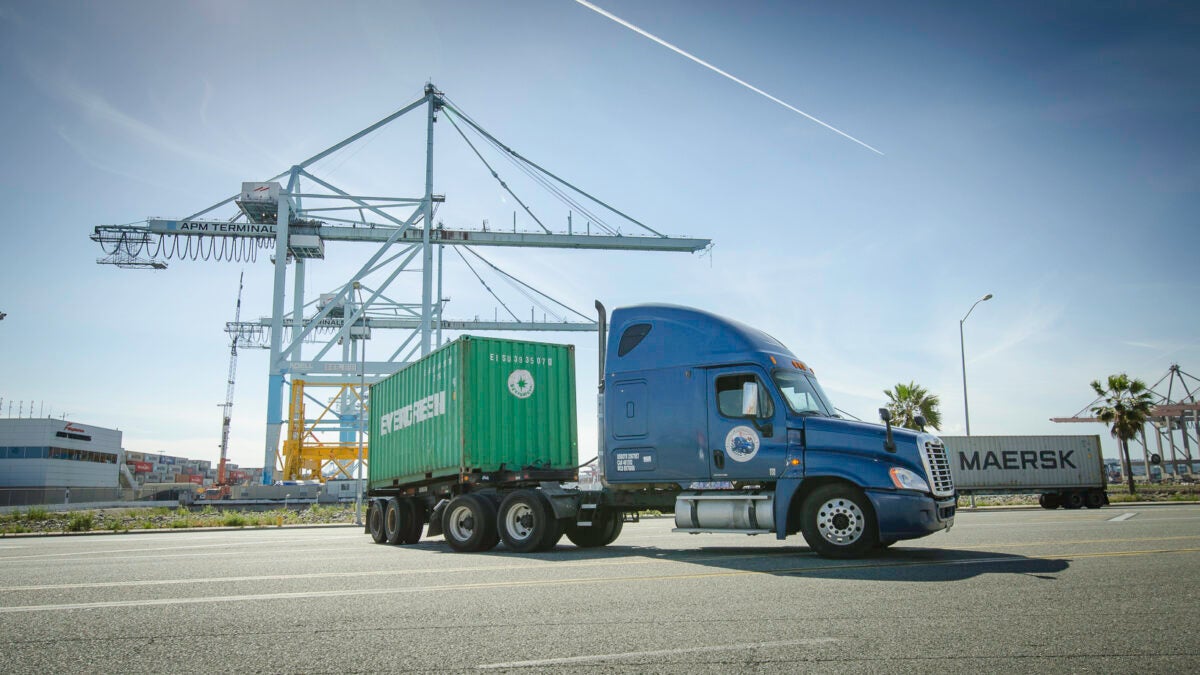WASHINGTON — New ideas that reduce truck pollution at U.S. seaports will be considered for federal funding in a grant program rolled out Thursday by the Federal Highway Administration, according to FHWA chief Shailen Bhatt.
The Reduction of Truck Emissions at Port Facilities Grant Program is a five-year, $400 million program authorized by the infrastructure bill signed into law in 2021. FHWA is opening the application process for $160 million in federal money from the program for fiscal years 2022 and 2023.
The funding will award projects that lower emissions from idling trucks.

“When truckers spend hours idling at ports, it costs them time, takes money out of their pockets, and pollutes the air in nearby communities,” said Transportation Secretary Pete Buttigieg.
“The investments we are announcing today will save truck drivers time and money, help ports reduce congestion and emissions, and deliver better air quality for workers and communities alike.”
According to FHWA, truck emissions in neighborhoods adjacent to ports disproportionately bear the negative environmental effects. Those effects have increased over the past several years as port-related trade has increased, causing long lines of trucks waiting to load and offload containers.
“I think the problem we’re identifying is that ports are incredibly important from an economic activity perspective and supply chain is incredibly important,” Bhatt told FreightWaves. “But we want to recognize that ports and the infrastructure around them often have neighbors, so we want to make sure we’re not burdening people who live near a port with unnecessary pollution.”
Projects eligible for the program include:
- Port-related infrastructure that reduces emissions from truck idling.
- On-truck technologies that reduce emissions from port-related truck idling.
- Zero- or low-emissions powertrains or fuels on trucks.
- Enhanced intermodal rail connections that reduce truck congestion within or adjacent to ports.
- Port electrification that reduces port-related emissions from idling trucks.
- Charging stations and electrical hookups for trucks alongside auxiliary electric power units that are used to provide power to the cab or sleeper berth while allowing the truck’s engine to be turned off and save fuel.
Bhatt said he wants to be flexible and open to ideas in a competitive grant program for which he expects to see much more in funding requests than there are available funds.
“From my experience in the public sector, the best innovation generally comes from the private sector,” Bhatt said. “So rather than be prescriptive, we want to be open to ideas around innovation that can be deployed and scaled up.
“Part of the excitement about this program is that we want to test and evaluate ideas that are out there, if folks have a great idea that could provide a benefit around reducing emissions. We’ll find out when we get the applications in.”
The grant program is part of the Justice40 Initiative, a Biden administration commitment to ensure that 40% of the overall benefits of certain federal investments flow into disadvantaged communities that are “marginalized, underserved, and overburdened by pollution.”
Details on the grants and how to apply for them can be found here.











